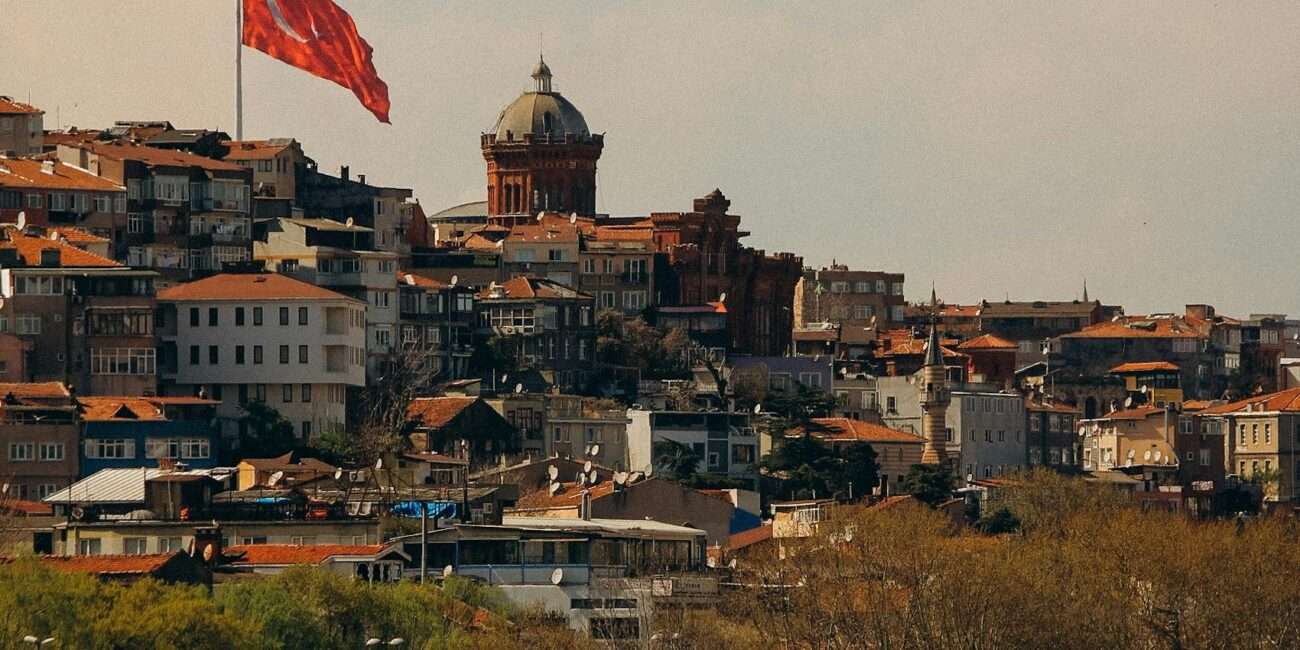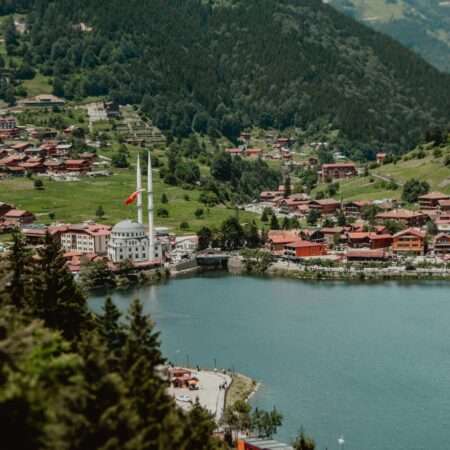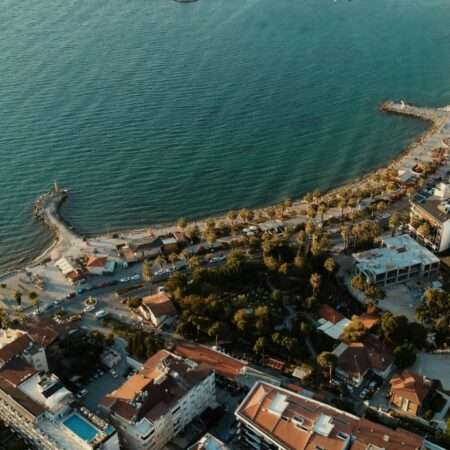Traveling to Türkiye means more than just seeing the sights — it’s also about respecting the local customs and blending in with the culture. From greetings and dress codes to dining manners and mosque etiquette, knowing a few cultural basics can go a long way in creating positive interactions with locals. In this 2025 guide, we’ll cover the most important etiquette tips and unspoken rules that every traveler should know before visiting Türkiye.
🇹🇷 Quick Overview: What Makes Turkish Culture Unique?
- A blend of East and West: Türkiye straddles Europe and Asia.
- Deeply rooted in hospitality and tradition.
- Influenced by Islamic culture, but also secular and modern in many areas.
- Family-oriented, respectful, and community-focused society.
🙋♂️ Greetings and Social Etiquette
👋 How to Say Hello
- The most common greeting is: “Merhaba” (Hello).
- For informal encounters, “Selam” is also used.
🤝 Handshakes & Kissing
- A firm handshake is common in professional or first-time meetings.
- Among friends or relatives, two-cheek kisses (left then right) are standard.
- Men may place a hand on the chest after shaking hands—a sign of sincerity.
🧓 Show Respect to Elders
- Always greet older people first in a group.
- Use respectful titles:
- “Teyze” (aunt) and “Amca” (uncle) for older strangers.
- “Abi” (older brother) or “Abla” (older sister) for peers.
👁️ Eye Contact
- Maintain moderate eye contact—shows honesty and interest.
- Avoid intense staring, especially toward the opposite gender.
🕌 Mosque Etiquette and Religious Sensitivity
⛪ Visiting a Mosque
- Mosques are open to non-Muslims outside of prayer times.
- Remove your shoes before entering.
- Dress modestly:
- Men: No shorts or sleeveless shirts.
- Women: Cover head, shoulders, and legs (scarves often provided at large mosques).
📿 During Prayer Time
- Avoid walking in front of people praying.
- Stay quiet and avoid phone use.
- Don’t take close-up photos during prayer; be discreet.
📆 Religious Holidays
- During Ramadan, some locals fast from sunrise to sunset.
- Out of respect, avoid eating, drinking, or smoking in public during daylight hours in more conservative areas.
👗 Dress Code: What to Wear in Türkiye
🏙️ Cities (Istanbul, Izmir, Ankara)
- Western-style clothing is normal.
- Women can wear skirts, shorts, tank tops—but avoid overly revealing outfits in certain areas.
- Men: T-shirts and jeans are fine.
🕌 Religious Sites or Villages
- Dress modestly:
- Women: Long skirt/pants and a scarf in your bag just in case.
- Men: Avoid shorts and sleeveless tops.
🏖️ Beach Resorts (Bodrum, Antalya)
- Swimwear is accepted at the beach or pool—but cover up in town.
- Topless sunbathing is rare and discouraged.
🥘 Dining Etiquette in Türkiye
🍽️ Table Manners
- Say “Afiyet olsun” (Bon appétit) before eating.
- Wait for the eldest person to start eating.
- Don’t start with drinks—tea or water comes first.
🙏 After the Meal
- Say “Elinize sağlık” (Bless your hands) to the cook.
- Tipping is not mandatory, but 5–10% is appreciated in restaurants.
☕ The Turkish Tea & Coffee Culture
- Accepting tea is a sign of friendliness.
- Locals may offer it in shops—you’re not obligated to buy anything.
- Turkish coffee is strong and often served with water and something sweet.
🏠 Visiting a Turkish Home
🎁 Bring a Small Gift
- Sweets, flowers, or something from your country are great options.
- Avoid alcohol unless you know they drink.
👟 Remove Your Shoes
- Always take off your shoes at the entrance.
- Slippers are usually offered.
🪑 Seating Etiquette
- Wait to be shown where to sit.
- Avoid stretching your legs toward others or showing the soles of your feet—considered impolite.
💬 Key Phrases to Show Respect
| English | Turkish | When to Use |
|---|---|---|
| Hello | Merhaba | Greeting anyone |
| Thank you | Teşekkür ederim | Formal gratitude |
| Please | Lütfen | Requesting politely |
| Excuse me / Sorry | Affedersiniz | Getting attention or apologizing |
| Enjoy your meal | Afiyet olsun | Before someone eats |
| Bless your hands | Elinize sağlık | After someone cooks |
Learning even a few of these will win you smiles and better service.
💡 Gender Interactions in Turkish Culture
- Public displays of affection (kissing, hugging) are frowned upon in conservative areas.
- Be cautious about initiating physical contact with the opposite gender.
- In liberal cities, norms are more relaxed—but it’s always better to observe first.
🚕 Transportation Etiquette
- Let elders and women board first.
- Offer your seat to elderly, pregnant, or disabled passengers.
- In taxis, it’s polite to sit in the back seat unless invited to the front.
📸 Photography Etiquette
- Ask permission before taking photos of people, especially:
- Elderly
- Women wearing headscarves
- Children
- Avoid photographing military sites or police stations—strictly prohibited.
🤝 Business Etiquette
- Punctuality is appreciated but flexible in practice.
- Start meetings with small talk—don’t rush into business.
- Business cards are exchanged with a smile and both hands.
🎉 Celebrations and Customs
🎈 Common Holidays
- Ramazan Bayramı (Eid al-Fitr): Family gatherings, candy sharing.
- Kurban Bayramı (Eid al-Adha): Traditional animal sacrifice and family meals.
- Republic Day (Oct 29): Parades and national pride.
🧿 Evil Eye Symbol
- Called “Nazar Boncuğu”, it’s believed to protect against bad energy.
- Common gift, especially for babies or new businesses.
🧳 Traveler’s Mistakes to Avoid
| Mistake | Why It’s a Problem | What to Do Instead |
|---|---|---|
| Wearing shoes indoors | Seen as disrespectful | Always take them off |
| Not greeting everyone | Considered rude | Greet with eye contact & smile |
| Being loud in public | Culturally frowned upon | Keep voice moderate |
| Public intoxication | Socially unacceptable in many areas | Drink in moderation and in designated places |
🌍 Regional Differences in Etiquette
- Istanbul & coastal cities: Liberal, relaxed, tourist-friendly.
- Central Anatolia & Eastern Türkiye: More conservative—dress and behave modestly.
- Southeast Türkiye: Strong emphasis on hospitality and traditional values.
📲 Apps to Help You Navigate Culture
- Google Translate: Real-time translations.
- Piri Guide: Cultural walking tours in major Turkish cities.
- BiTaksi: Uber-style app for Turkish taxis—avoids communication issues.
✈️ Final Thoughts
Respect and curiosity go a long way in Türkiye. The country’s hospitality is legendary, and by learning just a few key customs, you’ll not only avoid faux pas but also experience deeper connections and warm welcomes.










